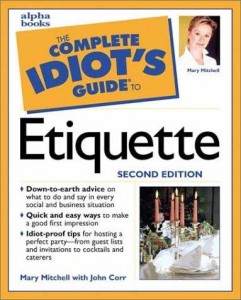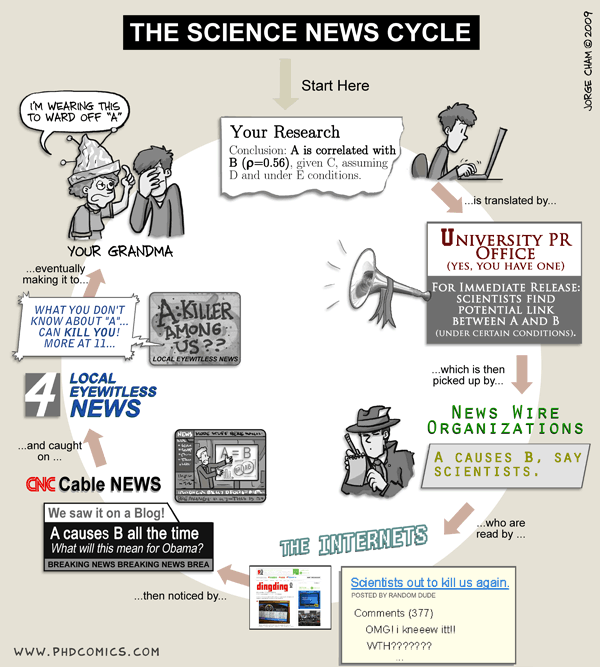I’m finding more and more of a disturbing trend lately… where Autism blogs, by parents, are deeming themselves news media and submitting their work to Google News and other sources.
The media, especially aggregators such as Google News, make it especially easy these days for average people to be heard… not just heard, but to be included in with the other news stories.
Many news sources allow “reader opinions” or even let them write in as “editorial pieces”… which is good, to a point. However many people don’t differentiate these stories from actual, fact checked and verified news stories… not that actual journalists are a whole lot better these days, but you get the point.
 When the news isn’t the news
When the news isn’t the news
There’s a code by which journalists go by, or at least should go by. That is that they reports facts as facts and opinions as opinions. That means that they need to get on the phone, go to the locations, talk to the people and verify that facts are facts.
The news agencies have a very real obligation to the public to bring current, accurate and fact checked information… obviously this doesn’t happen very well, especially with recent events in the media but in practice, this is how it’s supposed to be.
Blogs are a way for people to share their opinions, to add commentary to what they find in the news and to share information that they have acquired. Bloggers can do a fair amount of fact checking but for the most part, the fact checking involves what they read from the media, from other bloggers, from other websites that have random information and some people even use Youtube.
Two wrongs do not make a right
Many bloggers find that the media is slanted or even lie to tell their own versions of stories… so those bloggers write their blogs to combat what they find in the media, to argue their side of the story.
Eventually, they discover that they can submit their own stories as news sources as well, thinking that their own slant will help to balance the system but this couldn’t be more wrong.
First of all, two wrong opinions, event if opposites, have no guarantee of being right. Also, even if one is right and one is wrong, who should the reader believe? Because most people will believe one and not the other, rather than find middle ground or seek more information.
Worst of all, most people won’t even read information from both sides in the first place.
No room for a second opinion
People don’t read the news from various sources to get a second opinion. If they get their news from one source, they depend on that source…. and will rarely go to another source. Especially if it’s the same story.
Which means that they won’t fact check it themselves, they just believe what they read and take it as fact. You see it all the time when you talk to people that argue with you on current events… they’re so sure of something that you believe differently… it’s because you got your news from different sources.
If a person believes your blog posts to be their dependable news source, good for you… bad for them. I feel bad for them because they now think your opinion is a fact. And whether you are right or wrong… no opinion is fact.
When the solution only adds to the problem
I see these blogs in the Google News lists and I cringe. Actually, I see red. It really upsets me.
These people, upset that the media is deceiving them, go out of their way to deceive people. What kind of messed up logic is that??
It’s even worse when I continue on to read them and it’s so blatantly obvious that it’s an opinion, and more so, a wrong opinion… that is so blatantly obviously slanted to their own views…. that’s what really upsets me.
Now, there’s nothing wrong with having a blog, there’s nothing wrong with even getting hundreds of thousands of readers… if people like your reading, like what you’re saying… great work! Good on you.
But your blog is not news!!!
I wish there was a way to “report” these sites or people such that they’d be de-listed because there’s just no way that they should be included with other news sources.
But as it stands, there is no way to do that. We have to filter ourselves and just hope we can recognize a blog post from a news source.
If our community isn’t messed up enough with the conflicting messages we send the public, do we really need to make it worse by doing this?!?













